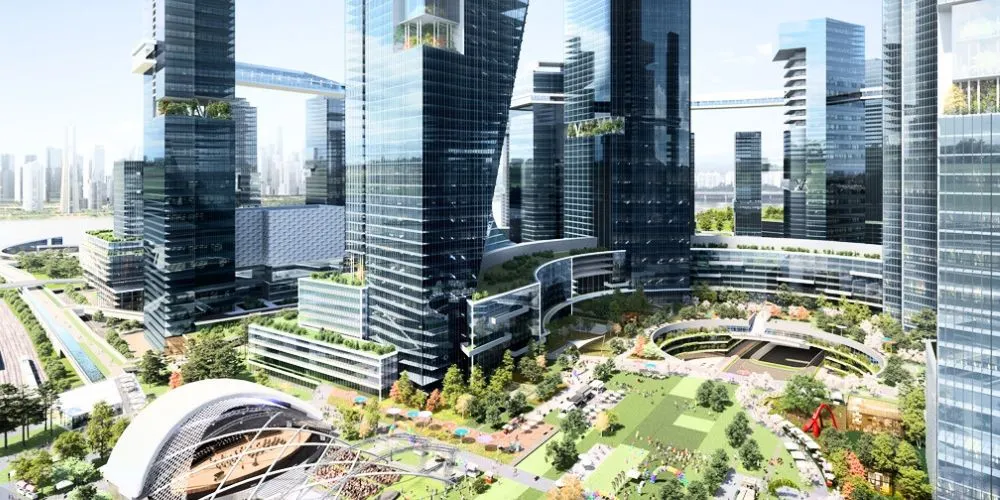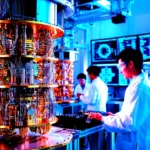On Monday, the Seoul Metropolitan Government unveiled an ambitious plan to transform an abandoned train maintenance depot in the central district of Yongsan into the world’s largest “vertical” city, centered around a 100-story international business skyscraper. The Yongsan International Business District’s (IBD) grandiose project will encompass global business, business complex, and residential and cultural areas.
Spanning a massive 495,000 square meters of land, the Yongsan IBD aims to become Seoul’s new landmark skyscraper, serving as the epicenter of a futuristic city. With a projected budget of 51.1 trillion won ($38.4 billion), the project will be financed by public and private funds.
One of the standout features of the development is the innovative 1.1 km pedestrian sky bridge, named Sky Trail, which will connect nine buildings at the height of the 45th floor. This high-rise pedestrian bridge will offer a panoramic view of Seoul, providing residents and visitors with a unique experience. Additionally, extensive green spaces equivalent to 11 soccer fields combined will be incorporated into the area, with 20% designated as parks.
Seoul Mayor Oh Se-hoon emphasized the city’s commitment to making the Yongsan IBD a global standard for high-rise business-residential complex development. The project aims to transform Seoul into one of the top five global cities, showcasing its urban innovation and sustainability vision.
The Yongsan IBD will adopt a “compact city” concept, ensuring access to business, residential, and cultural facilities is within walking distance. The development is a collaboration between the Seoul Metropolitan Government, Korea Railroad Corp. (KORAIL), and Seoul Housing & Communities Corp. (SH Corp.).
Once completed, the project is expected to create 146,000 jobs and generate annual production worth 32.6 trillion won from the zone. The development will consist of three connected zones: the international business zone, the business complex zone, and the residential area, each serving distinct purposes to cater to the diverse needs of residents and businesses.
To align with Seoul’s goal of achieving carbon neutrality by 2050, the city government plans to implement smart transportation facilities, including autonomous shuttle buses and urban air mobility vehicles. This visionary project aims to establish Yongsan as Seoul’s eco-friendly transport hub while creating a vibrant and sustainable urban environment for future generations.




